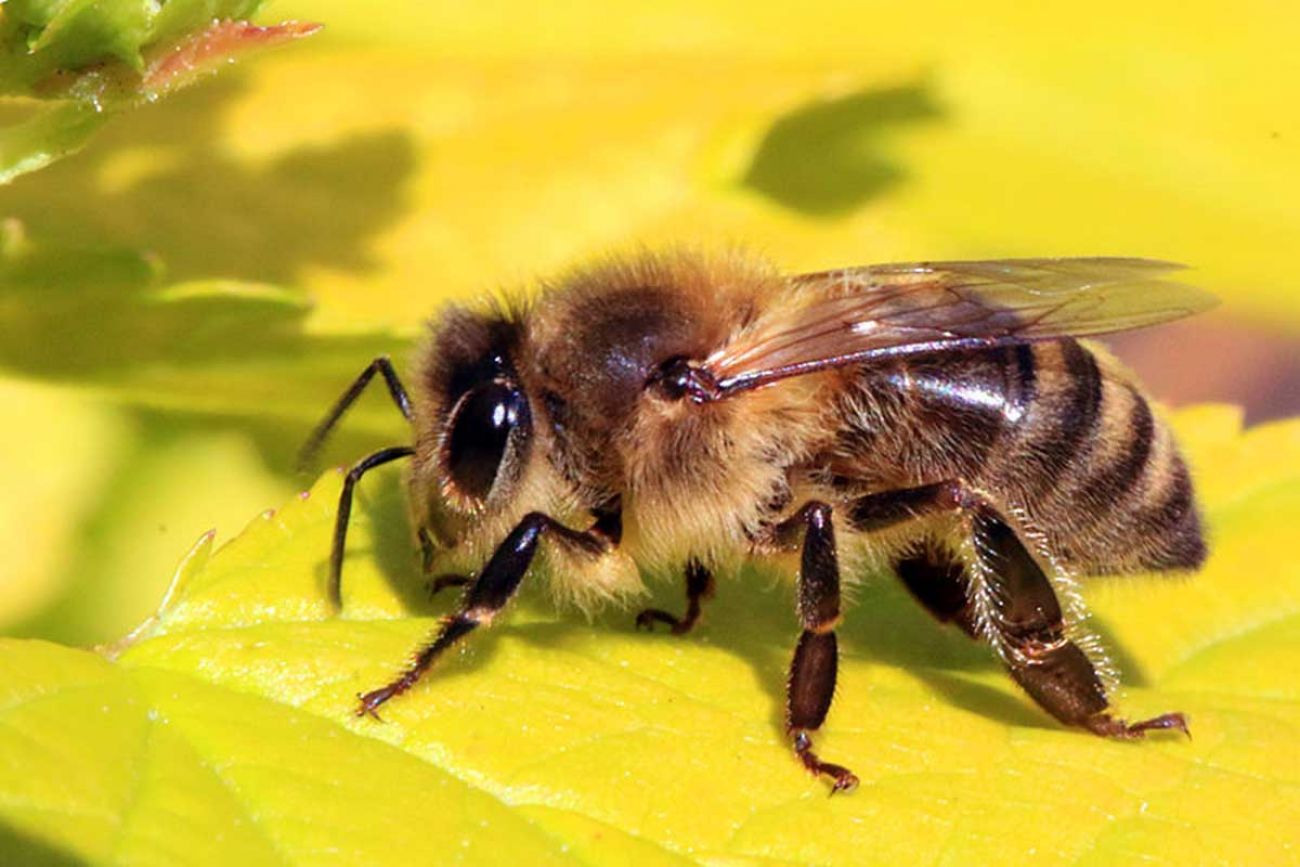Michigan environment roundup: ‘Bee highway’ to the rescue in Detroit

Bridge Magazine is committed to sharing the best environmental journalism in and around Michigan, an effort called #EnviroReads.
In Bridge’s Michigan Environment Watch, we share a roundup of recent stories on the Great Lakes or other issues. If you see a story we should include next time, use the hashtag #EnviroReads on Twitter or email Environmental Reporter Jim Malewitz at jmalewitz@bridgemi.com.
What Happens When Humans Fall In Love With An Invasive Species
FiveThirtyEight
“There is no commercial smelt fishing on Lake Superior today. But because the smelt in Lake Superior are an invasive species, their decline is actually a sign that the lake is becoming healthier, ecologically speaking,” Maggie Koerth-Baker reported. “From a cultural and economic perspective, though, the North Shore isn’t what it was. So is the decline of smelt something to celebrate? And if so, who should be throwing the party?”
Mackinac Bridge Authority members: We weren't consulted on Straits tunnel
Detroit Free Press
“The Mackinac Bridge Authority owning a new oil pipeline tunnel under the Straits of Mackinac that's built by, then leased back to, Canadian oil transport giant Enbridge? That's news to bridge authority members. Three members of the seven-member Mackinac Bridge Authority board contacted by the Free Press on Friday said they had no involvement with, or input into, the plan announced by Gov. Rick Snyder's administration and Enbridge,” Keith Matheny reported.
‘We were here first’: Tribes say Line 5 pipeline tunnel ignores treaty rights
Energy News Network
“Michigan officials have spent the past year pursuing a plan to tunnel an oil pipeline beneath the Straits of Mackinac while ignoring the 182-year-old treaty rights of Native Americans,” Andy Balaskovitz reported, citing multiple tribal leaders. “While the Snyder administration formally met with tribes three times over the past year under a State-Tribal Accord, tribal chairpersons say these consultations were little more than an “airing of grievances” for them.”
A ‘bee highway’ is being created in Detroit, and it could help offset the dangerous decline of honeybees
Business Insider
“A nonprofit in Detroit is setting up beehives around the city to help increase local bee populations and educate residents about the importance of pollinators. Bees in the D, which launched two years ago with six hives, operates 102 hives throughout Michigan and nearby areas,” Peter Kotecki reported. “The US Department of Agriculture estimates that honeybees pollinate about $15 billion of crops each year, including almonds and zucchinis. But honeybee populations have declined dramatically for most of the past decade, largely due to Colony Collapse Disorder, in which a majority of worker bees disappear from their colony.
State at odds with feds over Wurtsmith chemical contamination
Detroit News
“State officials and the Department of Defense remain deadlocked over whether the Air Force should accept more responsibility for cleaning up and paying for the chemical contamination in Oscoda after nearly a year in dispute resolution,” Beth LeBlanc reported. “The ongoing disagreement between the Michigan Department of Environmental Quality and federal officials was highlighted during last Friday's round table discussion with the U.S. Environmental Protection Agency in Kalamazoo, where the Department of Defense was notably absent.”
Michigan's hops industry hopping
Detroit News
“Few businesses can boast a 150 percent increase in production in two years. Michigan hop farmers can. The growth of craft beers and number of specialty brewers has created new opportunities for growers in Michigan, where soil and climate conditions are optimal for quality hop production along the 45th Parallel,” John L. Russell reported. “The renewed interest in locally grown farm products and the popularity of brewpubs have given rise to hop yards throughout the state."
Why this 2010 approval of a multi-million gallon Great Lakes water diversion is drawing new scrutiny
Michigan Radio
“When Peter Annin, director of the Burke Center for Freshwater Innovation at Northland College, was completing research for an updated version of his book The Great Lakes Water Wars, he discovered a detail about Great Lakes water diversions that had gone unnoticed for 8 years,” Michigan Radio’s Stateside staff reported. “According to his findings, the state of Wisconsin never announced that in 2010, it approved the village of Pleasant Prairie’s request to extract seven million gallons of water per day from Lake Michigan, the largest water diversion in the state.”
Michigan Environment Watch
Michigan Environment Watch examines how public policy, industry, and other factors interact with the state’s trove of natural resources.
- See full coverage
- Subscribe
- Share tips and questions with Bridge environment reporter Kelly House
Michigan Environment Watch is made possible by generous financial support from:
Our generous Environment Watch underwriters encourage Bridge Michigan readers to also support civic journalism by becoming Bridge members. Please consider joining today.
See what new members are saying about why they donated to Bridge Michigan:
- “In order for this information to be accurate and unbiased it must be underwritten by its readers, not by special interests.” - Larry S.
- “Not many other media sources report on the topics Bridge does.” - Susan B.
- “Your journalism is outstanding and rare these days.” - Mark S.
If you want to ensure the future of nonpartisan, nonprofit Michigan journalism, please become a member today. You, too, will be asked why you donated and maybe we'll feature your quote next time!



